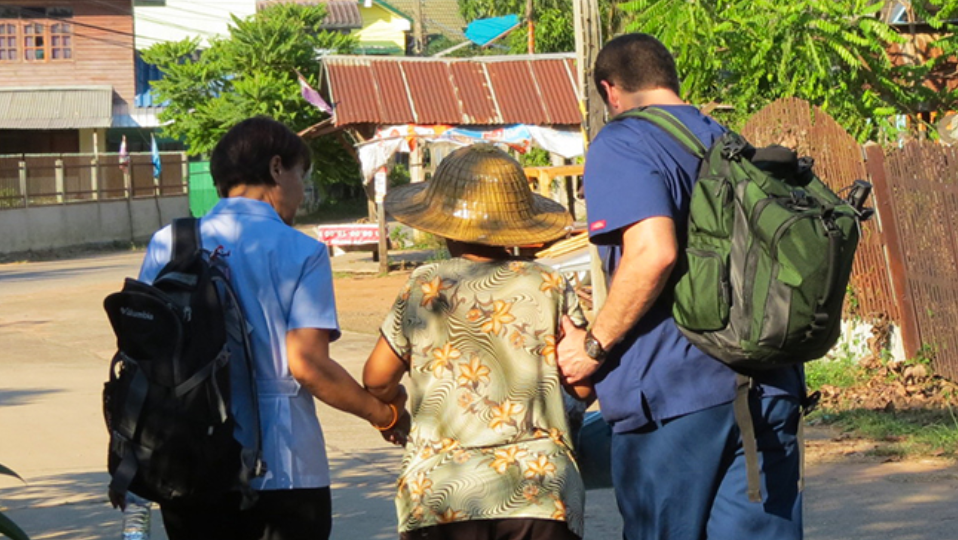Concentrations
Undergraduate and graduate students can add a concentration to their degree program. We offer concentrations in global health and occupational health nursing.

Global Health Concentration
The Global Health Concentration (GHC) is designed to provide students with coursework and experience to enhance their global clinical and scholarly work. The concentration emphasizes an understanding of evidence-based practice, policy and leadership related to global health. Students in any master’s or DNP program are eligible to add the GHC to their degree.
Objectives:
- Understand the global burden of disease.
- Describe the health implications of migration, travel, and displacement.
- Explain the social, cultural, and environmental determinants of health.
- Analyze how globalization is affecting disease patterns and the availability of health care workers globally.
- Analyze the how culture and social structure interact to affect access to and provision of health care
- Articulate the impact of low resources on access to and provision of health care.
- Describe the relationship between human rights and health.
For more information, set up an appointment with an advisor – email [email protected].
Programs
Occupational Health Nursing Concentration
This information is intended for students who are currently enrolled in the concentration. This concentration is not accepting new applications.
Workers are exposed to hazards and experience multiple work-related illnesses and injuries. The University of Michigan School of Nursing offers specialty training for nurses interested in maximizing workers’ health and productivity and decreasing illnesses and injuries while controlling costs.
Occupational health nursing is a challenging and rewarding sub-specialty with multiple career options in clinical practice, health services administration, higher education, and research. Occupational health nurses are employed by businesses, industry, government agencies, hospitals, clinics, their own businesses as well as colleges and universities.
Objectives
Provide for and deliver health and safety programs and services to workers, worker populations and community groups.
Promote and restore health, prevent illness and injury, and protect against work-related injuries and environmental hazards.
Requirements
The concentration requires 15 credits in addition to all required courses in the student’s selected track. These credit hours include interdisciplinary occupational health and public health courses, such as occupational and environmental health, occupational diseases, ergonomics and safety.
Courses
- EHS 603 Occupational & Environmental Diseases (3 credits, winter term)
- EHS 601 Exposure Science and Health (3 credits fall term)
- IOE 539/EHS 552 Occupational Safety or NURS 591 Occupational Safety for Nurses (3 credits).
- EHS 556 Occupational Ergonomics (2 credits, winter term)
- NURS 572 Current and Emerging Issues in Occupational Health Nursing (2 credits, spring/summer term)
- EHS 510 Responsible Conduct of Research (1 credit, fall and winter term)
- EHS 668/IOE837 Interdisciplinary Perspectives In Occupational Health (1 credit, winter term)
- Supervised clinical practicum in occupational health (course number varies)





